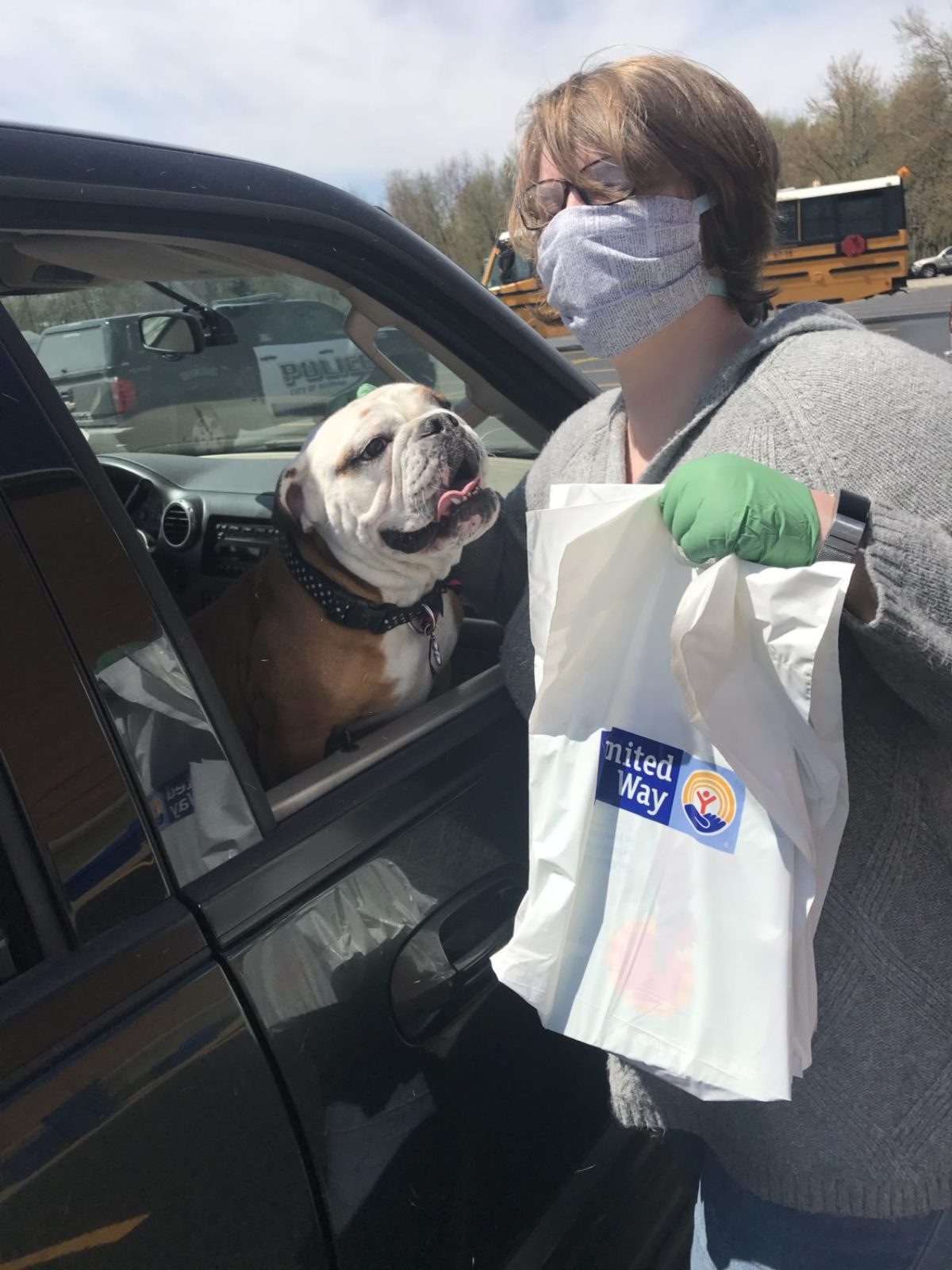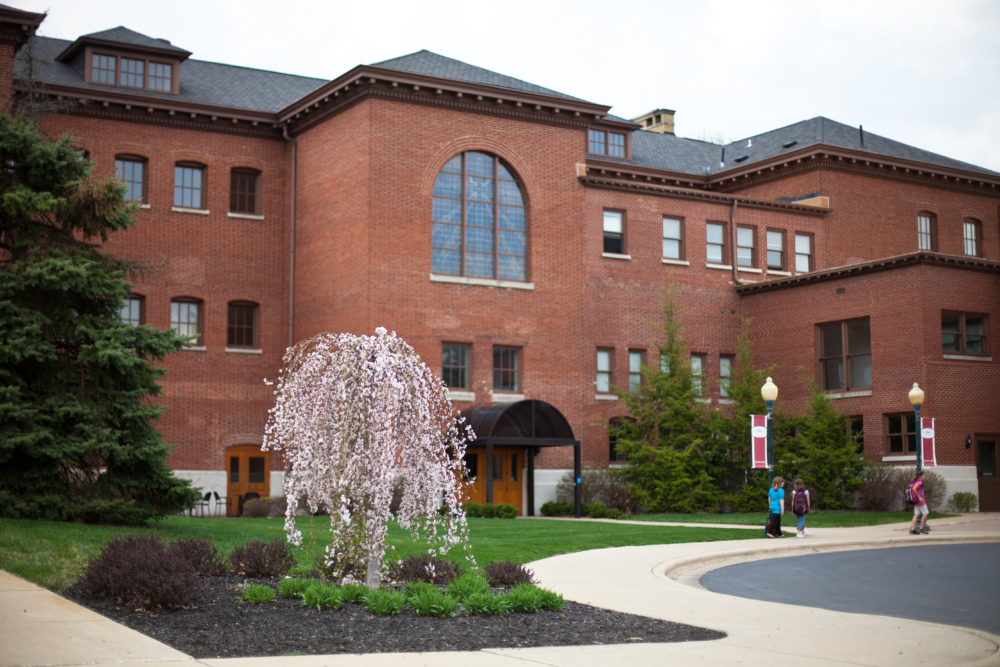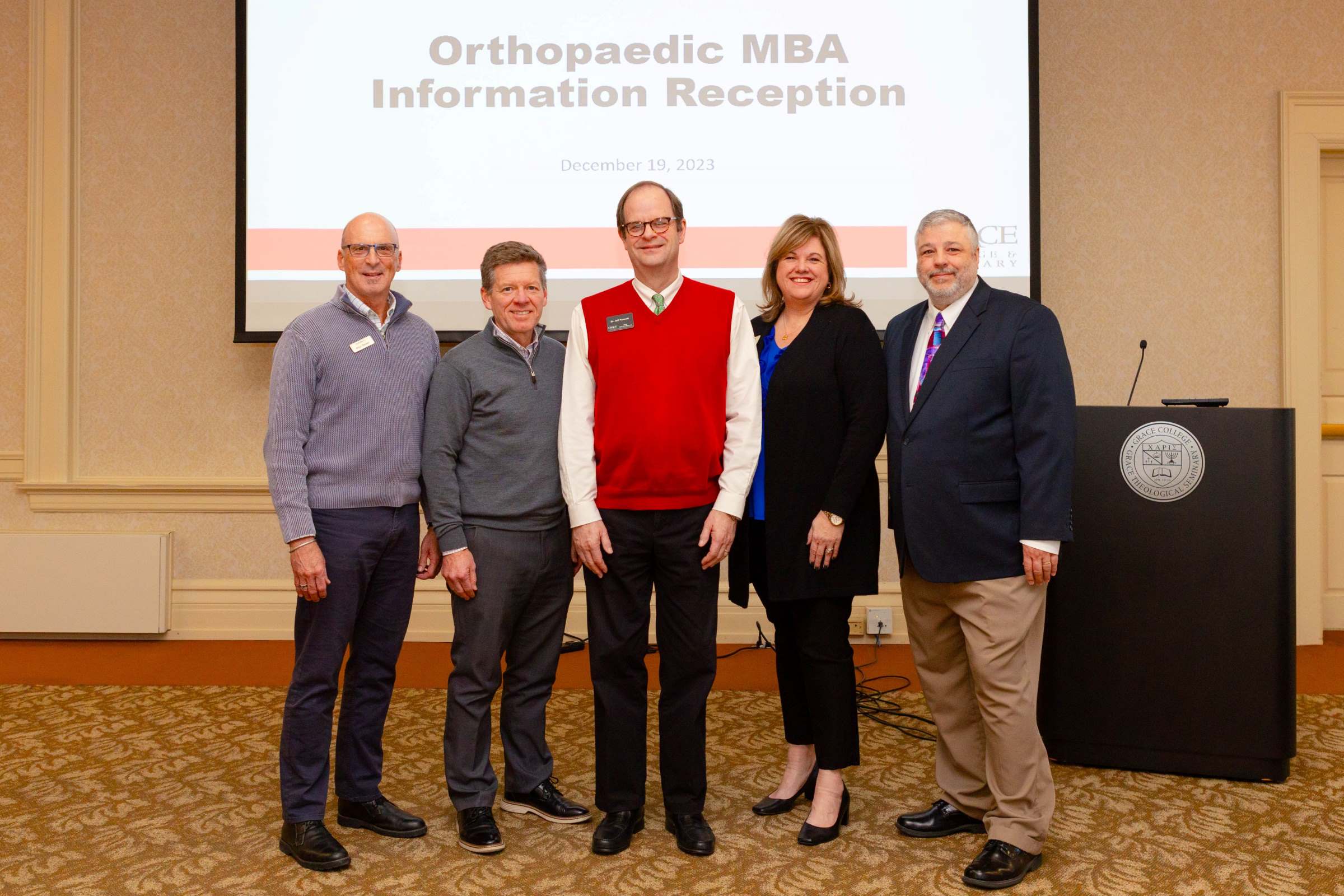July 29, 2020
A Study by Grace College: How COVID-19 is Impacting Local Nonprofits
Tagged With Masters Programs NonProfit Management

The COVID-19 pandemic has affected every organization and individual near and far. From cancellations to altered strategies to health and safety guidelines, our world has seemingly turned upside down. Where do communities turn in a time of uncertainty, recession, and abundant need? In Warsaw, Indiana, the answer is local nonprofits. Nonprofit organizations are extremely prevalent in the community that surrounds Grace College, and they have come alongside the people of Winona Lake and beyond to ensure that there are opportunities for education, health, and prosperity even in chaotic conditions.
So how have the nonprofits in the Warsaw area responded to COVID-19? According to our research, they have answered the needs in our community with noteworthy adaptability and incessant grace. If you’re interested in a Master’s in Nonprofit Management online, this study is a perfect starting point to learn more about nonprofit organizations in the midst of global-scale change. Here are a few common themes that came out as we interviewed local nonprofit organizations.

Creative Adaptability is a Must Nonprofit Program Managers
Darren Bickel, President of United Way of Kosciusko County, a nonprofit that works to improve the quality of education in the community, says, “We have a dry erase wall calendar, and in early March we took the cleaner spray to it and wiped it all off. We said, ‘None of this is happening now. Where do we go from here?’”
If you’re working on a Master’s in Nonprofit Management online, it’s no surprise to you that most nonprofit organizations plan their programs months or even years in advance. They have a strategy and a well-developed route to accomplish their goals and secure the donations. But when the pandemic began to intensify, nonprofits globally had to make a decision: respond to the community’s new immediate needs or cancel everything and wait for normalcy.
“When our community is rapidly changing overnight, we have to pivot and get in step with what the community needs us to be,” Bickel says. And that’s what United Way has done. Rather than mourning the loss of their 2020 plans and sending their nonprofit program managers home, they looked around and sought out needs. First, they enlisted local seamstresses who wanted to help and launched United We Sew. The program has donated 6,000 handmade masks to hospitals thus far. Then they realized that many Pre-Kindergarten students in the community didn’t have assignments to focus on during quarantine. So United Way gathered eager community volunteers and made 2,500 Busy Bags for schools to hand out to children under the age of five. United Way jumpstarted other programs like Start United, Read United, and drive-through food pantries to help under-resourced families approach the coming school year.
United Way isn’t the only local nonprofit responding quickly to the needs of the community. The K21 Health Foundation, which responds to health needs in the community through grants and investments, has shifted their priorities during this time. President and CEO of K21 Rich Haddad, says, “This crisis has moved us to focus primarily on the NEED side of things in our community.” K21 recognized that this was an emergency for many people in the area and immediately began to fund the basic needs of the community more than ever before.
“Now, more than any time, those that care about the mission of a nonprofit need to invest in it, both in time and in donations.” Haddad of K21 Foundation says, “So many of the nonprofits use fundraising events, as well as program income, to support their work. The crisis has essentially shut down both of those sources of support, so we need to recognize this unique time and circumstances and step it up to bridge this gap until things can get back to some form of ‘normal’.”

Volunteers are Essential for Local Nonprofits
During the past five months of crisis, many nonprofits have seen a surge of volunteers raising their hands and jumping off the bench to help the community of Warsaw and Winona Lake.
According to a study by Femida Handy and Jeffrey L. Brudney, “Volunteers are an integral part of the labor force for many NPOs, and are regarded as co-producers alongside paid labor.” In many cases, volunteers may be just as important as the staff that organizes and directs them. Local nonprofit program managers agree that volunteers are essential, especially during the pandemic.
“It’s been an empathy challenge for us as a community,” Bickel of United Way says. “If it doesn’t directly affect you, can you still be compassionate about it? Compassionate enough that you feel compelled to action? We see people all day buying backpacks and reading to kids because the answer for them is, ‘yes!’”
The Beaman Home, a nonprofit with a mission to protect and shelter victims of domestic abuse, would agree. Executive Director Jennifer Hayes knows how important it is that her volunteers and staff are faithful. She says, “They come to work every day knowing there is a possibility that they may contract COVID-19, but they still continue to come and serve our clients.”
Thankfully, many nonprofits have seen volunteers rise to the challenges of this time. People from the community often have a great desire to help. The problem is, they don’t always know what to do. Bickel explains it this way: “If I say that we have a thousand kids struggling, they wouldn’t know how to help. So instead, we ask them to fill a backpack full of supplies or read to the kids three times a week.” The response to these simple but game-changing tasks is almost always enthusiastic.
“As soon as people see a pathway of how they can make a difference, they charge at it and really get excited,” Bickel says.
Nonprofit program managers must keep this in mind when they call on help in the midst of a crisis. Make the call-to-action clear, concise, and compelling. If you do so successfully, the volunteers will come, and your program will benefit.

Mental Health Deserves Attention
According to local nonprofit organizations, mental health has played a significant role in the needs of clients and the response of volunteers. A constant flux of opinions rippling through every media channel and ever-changing protocol and risk assessments have left many in a bout of anxiety, panic and even depression. Naturally, mental health should be an important discussion for nonprofits right now.
Hayes of The Beaman Home offers this insight: “Listen to the needs of your clients, don’t assume you know what they need. Be quick in your responsiveness, especially when it impacts mental health.”
As Hayes suggests, it’s vital that communities respond to mental needs right alongside physical needs. When emotional and psychological needs are recognized and fulfilled, communities are more equipped to respond creatively and quickly to crisis.
Additionally, it came out in our study that mental health is not just a concern of the organization’s clients, it’s also a primary benefit to the volunteers.
Volunteerism can actually have positive effects on one’s mental health according to Bickel of United Way: “One of the things about volunteering is you stop thinking about just yourself. The moment your brain starts making room for the knowledge that someone else is struggling, you start thinking about your problems just a little bit less. It takes your mind off of where it has been for months. Suddenly, you’re thinking ‘How do I do something for somebody else?’”
This is supported by a study done by Wendy Black and Ruth Living. In it, they found evidence that suggested that there was a positive relationship between mental health and volunteering. “Volunteering appeared to exert its positive effects predominantly on aspects of mental health by providing opportunities to increase confidence and self-esteem, gain social support, replace lost roles and feel included in community life,” the study says.
This is one topic frequently discussed in our Master’s in Nonprofit Management online. Social capital is the lifeblood of the third sector. In order to keep this intricate network of social work in good health, nonprofit program managers must highly value the mental health of its staff, clients, and volunteers.
Nonprofit Organizations are always Learning
Graduating with a Master’s in Nonprofit Management online isn’t the end of the education journey for executive directors and nonprofit program managers. Nonprofit organizations are always learning about their community and growing in their capability to serve where they’re needed. If you currently work for a nonprofit, or are considering a Master’s in Nonprofit Management online, then this advice is for you:
“The organizations who are doing best right now are not the ones who are saying, ‘It’s going to be over in another month, and all we have to do is hold on to what we’re used to doing and it will get better.’ The organizations who have really stood out realize that this virus is going to be around longer than we want and it’s going to be more intense than we want, so we better start responding to it in that way.” -Darren Bickel
“Constant communication with boards, staff, donors and clients is always important. Not ‘waste-your-time’ communication, but meaningful, informative, and personal communication is the life-blood of good management.” -Dr. Steve Grill, director of the Master’s in Nonprofit Management online program
Maybe this time of crisis has made you realize that you need to step up and volunteer or give to your local nonprofits. Or maybe you’re ready to start your Master’s in Nonprofit Management online to sit under professors with more than 40 years of nonprofit experience. Wherever you are in your journey, Grace is here to help.
Start with love. Meet the needs. Serve. Go with Grace.
If you live locally and want to learn more about volunteering, visit our local nonprofits’ websites:
Volunteer at United Way of Kosciusko
1 https://repository.upenn.edu/cgi/viewcontent.cgi?article=1092&context=spp_papers
2 https://journals.sagepub.com/doi/abs/10.1177/030802260406701202


